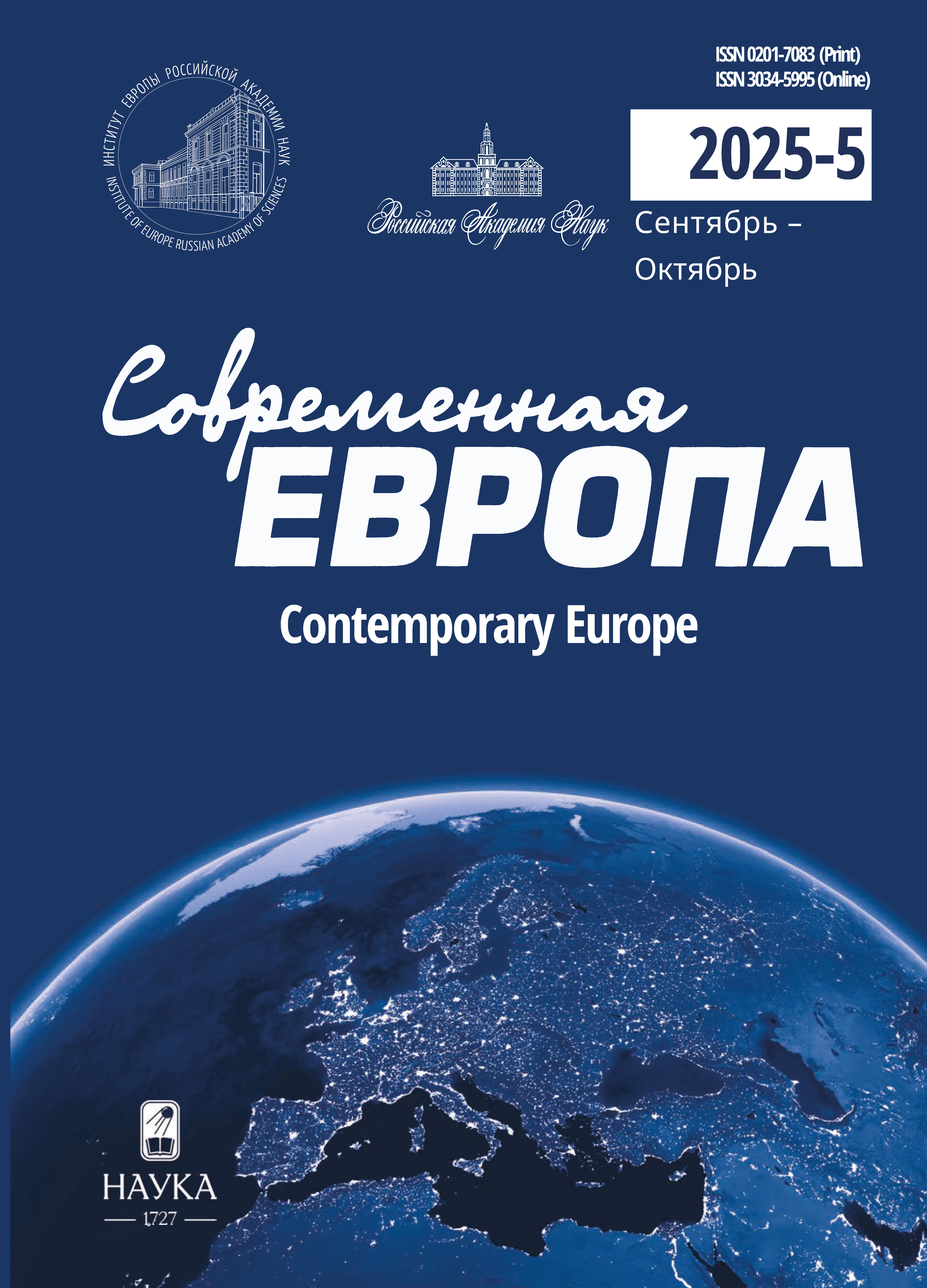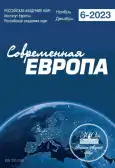Soft power in Turkey's foreign policy in Europe
- Authors: Grishin Y.Y.1, Islamov D.R.1
-
Affiliations:
- Institute of International Relations Kazan Federal University
- Issue: No 6 (120) (2023)
- Pages: 96-109
- Section: Articles
- URL: https://rjsvd.com/0201-7083/article/view/652194
- DOI: https://doi.org/10.31857/S0201708323060098
- EDN: https://elibrary.ru/XYWYWI
- ID: 652194
Cite item
Abstract
Since the mid-2000s, under the rule of the Justice and Development Party, Turkey has included the concept of soft power in its foreign policy agenda. Based on the position of Turkish officials, the practical implementation of soft power is based on public diplomacy, with its “infrastructure” being created at the same time by establishing new or transforming existing state structures in partnership with non-governmental organisations. Ankara has developed the main directions for public diplomacy to be based on interaction with its Turkish people living abroad and closely related Turkic peoples, the preservation and revival of the cultural, historical and material heritage of the Ottoman Empire, and the support of the Muslim community in different parts of the world. In addition, in recent years, relatively new directions have emerged, such as struggling against FETÖ and extension of coverage of the Turkish Radio and Television Corporation. One of the regions where the Turkish public diplomacy was implemented was Europe. The latter was divided into three sub-regions: the Balkans, Eastern Europe, and Western Europe. The Balkan countries were traditionally considered important regions for Ankara with the core goal to break old historical and cultural prejudices about its image and to form a positive one in the eyes of the public. With regard to Eastern Europe, Turkey, skillfully using the Ottoman heritage and/or the Turkic factor, exerts influence in Hungary, Moldova, and Ukraine. And the activity in Western Europe is more based on interacting with the Turkish diaspora. Therefore, the aim of the study is to reveal the main directions of Turkey's public diplomacy in the context of the implementation of the policy of soft power in Europe.
About the authors
Yakov Yakovlevich Grishin
Institute of International Relations Kazan Federal University
Email: grishin.42@mail.ru
Kazan, Russia
Damir Rimovich Islamov
Institute of International Relations Kazan Federal University
Email: dam1948@yandex.ru
Kazan, Russia
References
- Аватков В.А., Сбитнева А.И. (2022) Коридоры турецкого влияния: евроазиатский путь Анкары. Геоэкономика энергетики. № 3. С. 6-20. doi: 10.48137/26870703_2022_19_3_6
- Белоус Ю.А., Кулиева Н.С., Хасанов К.А. (2023) Особенности гуманитарного аспекта внешней политики современной Турции. Россия и современный мир. № 1. С. 115-136. doi: 10.31249/rsm/2023.01.07
- Гуськова Е.Ю. (2014) Турецкие планы на Балканах в современных геополитических условиях. Балканы в европейских политических проектах XIX-XXI вв. Отв. ред. Р.П. Гришина. Инслав РАН, Москва. С. 621-625.
- Исламов Д.Р., Кулиева Н.С., Мамедов Р.Т., Миронов А.Ю. (2023) Культурно-гуманитарная политика Турции: расширение подходов и диверсификация инструментов. "Мягкая сила" в Черноморско-Средиземноморском регионе. Отв. ред. Е.Г. Энтина. Институт Европы РАН, Москва. С. 131-152. doi: 10.15211/report12023_398
- Свистунова И.А. (2022) Гуманитарная политика Турции в странах постсоветского пространства. Россия и новые государства Евразии. № 2. С. 125-135. doi: 10.20542/2073-4786-2022-2-125-135
- Шерстюков С.А. (2022) Гуманитарная политика Турции: изменение концептов, масштабов и целей. Мировая экономика и международные отношения. T. 66. № 6. С. 102-111. doi: 10.20542/0131-2227-2022-66-6-102-111
- Энтина Е.Г. (ред.) (2022) Гуманитарная политика ведущих национальных акторов в странах Балканского региона: подходы, инструменты, результаты. Центр средиземноморских исследований НИУ ВШЭ, Москва. 87 с. URL: https://we.hse.ru/cms/balkans
- Altunışık M. (2022) Humanitarian diplomacy as Turkey's national role conception and performance: evidence from Somalia and Afghanistan. Southeast European and Black Sea Studies. P. 1-17. doi: 10.1080/14683857.2022.2131978
- Kalın İ. (2011) Soft Power and Public Diplomacy in Turkey. Perceptions: Journal of International Affairs. Vol. 16. No. 3. P. 5-23.
- Kanat K., Duran B. (2020) AK Party Years in Turkey Domestic and Foreign Policy. SETA Publications, İstanbul, Turkey. 401 p. URL: https://openaccess.ihu.edu.tr/xmlui/bitstream/handle/20.500.12154/1218/B.%20Duran.pdf?sequence
Supplementary files











